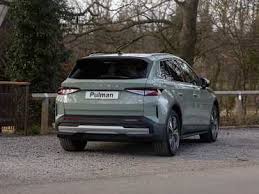Volvo: Innovations and Sustainability in the Automotive Industry

The Importance of Sustainability in Automotive
The automotive industry is undergoing a significant transformation as manufacturers grapple with the urgent need to address climate change and reduce carbon emissions. Companies such as Volvo are at the forefront of this movement, striving to implement sustainable practices while maintaining high levels of safety and quality in their products. With increasing consumer awareness and regulatory pressure, the strategies adopted by automakers like Volvo are not just beneficial for the environment but also crucial for their long-term viability.
Recent Developments at Volvo
Volvo has made headlines recently with its ambitious goal to become a fully electric car brand by 2030. This decision reflects a broader trend towards electrification across the industry, as many manufacturers look to phase out internal combustion engines. In a bold move, Volvo announced plans to invest significantly in battery technology and charging infrastructure, aiming to enhance the customer experience while contributing to a more sustainable ecosystem.
Furthermore, Volvo’s latest models feature cutting-edge safety technologies, such as advanced driver-assistance systems, and enhanced connectivity capabilities, allowing for integration with smart devices. This innovation reflects the company’s commitment to not only providing environmentally friendly vehicles but also ensuring that they are equipped with the latest safety and technological advancements. In 2023, Volvo released the XC40 Recharge, their first fully electric SUV, which has received positive reviews for its performance and eco-friendliness.
Challenges Ahead
Despite the progress, Volvo faces several challenges in its transition to electrification. The supply chain for electric vehicle (EV) components, particularly batteries, has become increasingly competitive. Issues such as sourcing sustainable raw materials and tackling production delays threaten to stall the company’s ambitious electric vehicle rollout plan. Additionally, expanding an effective charging network remains critical, particularly in regions where EV adoption is still in nascent stages.
The Road to the Future
Looking forward, Volvo’s commitment to sustainability will play a significant role in shaping the automotive landscape. As the company navigates the challenges ahead, consumer expectations will drive further innovation. With trends pointing towards shared mobility solutions and improved public transportation options, Volvo is expected to continue adapting its strategy accordingly.
In conclusion, the steps Volvo takes today towards sustainability and innovation will not only impact its future but also contribute to the automotive industry’s evolution. As consumers become more environmentally conscious, brands like Volvo that prioritise eco-friendly practices will likely gain competitive advantage, solidifying their position as leaders in the green revolution of automotive manufacturing.









